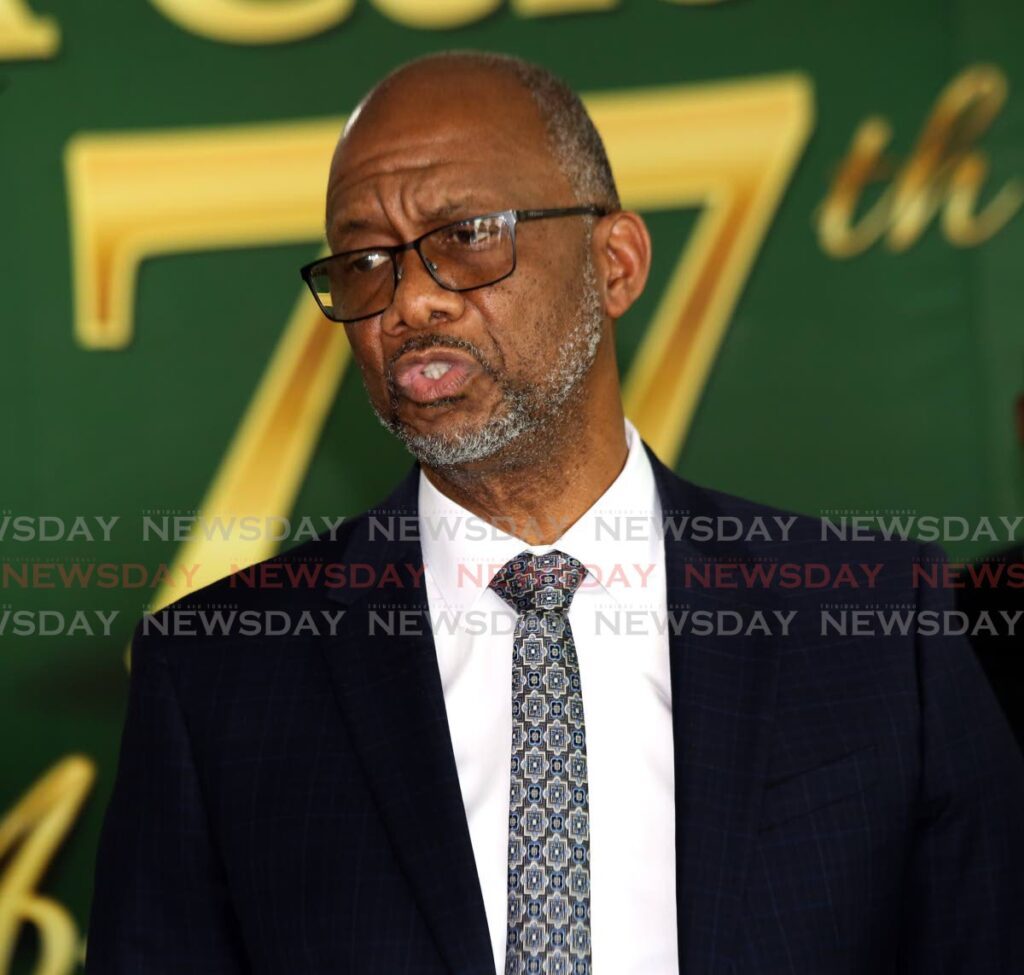Government pushes revenue authority start date to March 1, 2024

GOVERNMENT has pushed back the implementation of the Trinidad and Tobago Revenue Authority to March 1, 2024.
Attorneys for the State gave notice of the decision to the Court of Appeal, since the Public Services Association (PSA) has appealed the judgment of the High Court and has asked for an injunction to block the authority’s implementation until the matter is heard and decided.
The Court of Appeal was told the Finance Minister had decided “for operational reasons” to extend those sections of the TT Revenue Authority Act which gave public servants a timeframe to decide on their future employment.
Affected public servants can choose to resign from the Public Service, accept a transfer to the TTRA, or transfer to another office in the Public Service.
Initially, section 18 of the legislation, which President Christine Kangaloo proclaimed on April 24, gave public servants three months, or until July 31, to make a decision. That deadline was extended to November 30.
The new deadline is now February 29, 2024.
Newsday understands the Appeal Court was told the relevant legal order to implement that decision would be made by Wednesday.
In announcing its appeal and the application for the injunction, the PSA said in a statement on Monday, “The PSA is confident that it is necessary to preserve the status quo whereby public officers continue to serve in the Board of Inland Revenue (BIR) and the Customs and Excise Division (CED) where they are insulated from political interference until this case can be determined."
On November 17, Justice Westmin James dismissed the case the PSA brought through a member, customs officer Terrisa Dhoray.
The lawsuit contended specific segments of the legislation were unconstitutional, as they sought to interfere with the terms and conditions of employment of public servants currently assigned to the Customs and Excise Division and the Inland Revenue Division.
It was further argued that the Government did not have the power to delegate its tax-revenue-collection duties.
In his ruling, James said the TTRA was “meant to be a semi-autonomous revenue authority.”
“The TTRA being an agent of the government for the assessment and collection functions with oversight of the minister, a member of the Executive, the executive function related to this aspect of taxation has not been removed from central government.”
He also held that the enforcement provisions of the act did not give the Finance Minister and the TTRA board the power of appointment, removal and disciplinary control over the public officers exercising their enforcement powers.
“Those powers over public servants remain with the Public Service Commission under the act.”
In its statement on Monday, PSA president Leroy Baptiste said, “The PSA calls upon the Government to respect the rights of workers and do the decent and honourable thing by agreeing to an injunction or extending the deadline for workers to make the mandatory choice between their current job and the TTRA.”
He added, “This case raises issues of fundamental constitutional and public importance. The PSA is on the public record as committing itself to taking this case all the way to the Privy Council if necessary.
“We stand firm in our view that the Government must not be able to ride roughshod over the rights of workers and interfere with the management and operations of the BIR and CED."
He said this could have "disastrous consequences" for the country and "set a dangerous precedent that will subjugate the entire public service to the political whim and fancy of the Government."
The PSA’s application for an urgent appeal says public officers at the BIR and CED would “suffer irreparable harm, loss and prejudice if the TTRA is indeed operationalised” on December 1.
“The impact on their careers is unquantifiable and irreversible as it involves a loss of pension and retirement benefits, loss of acting appointments, promotions and tremendous anxiety, distress and inconvenience.
“It would be impossible to remedy the breach in the case of workers who have prematurely ended their careers by opting to resign instead of working for an entity that they believe to be unconstitutional and illegal.
“It will be disruptive to uproot officers who transferred to other areas in the public service and transplant them back into the taxation stream.
“The idea that you can simply press ‘delete,’ rewind the clock and revert to the BIR and CED as if nothing happened is unrealistic and untenable.”
It also said if the court declares the act illegal, this would lead to “grave constitutional and legal ramifications” as it means the TTRA would have unlawfully demanded and collected taxes in breach of the rule of law.
“The TTRA has been in the pipeline for over a decade, and hence, there is no real risk of prejudice if the status quo is protected and preserved pending the hearing and determination of this appeal if deemed fit for urgent and expedited hearing.
“The evidence of prejudice is rooted in the anticipated loss of revenue, which it is hoped the TTRA would bring.
“The respondent’s own expert has, however, explained that the empirical data has revealed that the implementation of such entities has not, in fact, resulted in any increase in revenue.”

Comments
"Government pushes revenue authority start date to March 1, 2024"